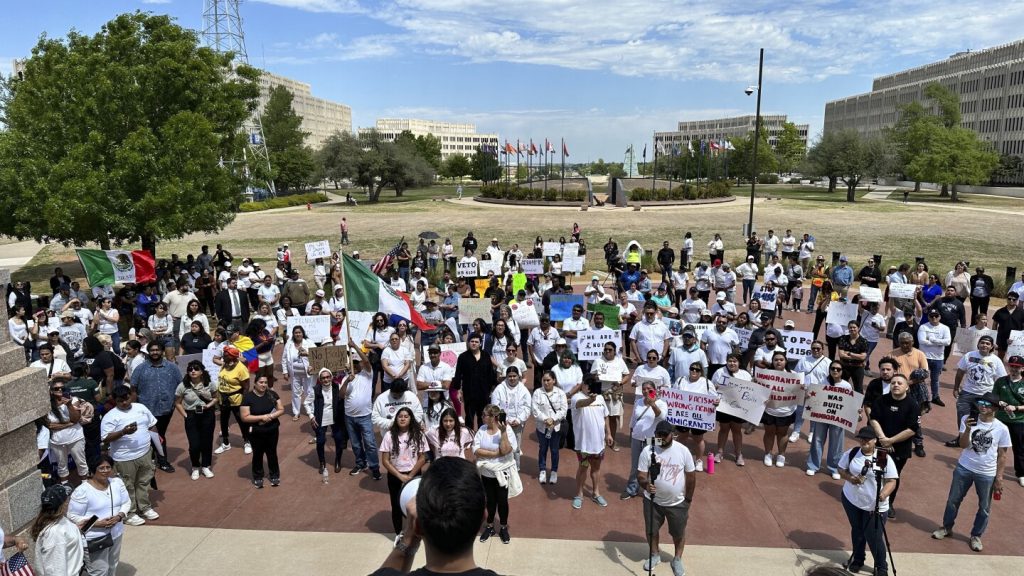Republican-led states are increasing efforts to give local police broader immigration enforcement powers and impose criminal penalties on those living in the country illegally. Oklahoma recently passed a bill creating the new crime of “impermissible occupation,” with penalties of up to two years in prison for being in the state illegally. This push for stricter immigration measures comes as the issue of migrants crossing the U.S. border remains central to the 2024 elections, with both Republicans and Democrats seizing on the issue.
Following Texas’ lead, Oklahoma’s law would make it illegal to remain in the state without legal authorization, with penalties that include up to a year in jail for a first offense and up to two years for subsequent offenses. The legislation has sparked opposition, with over 100 people rallying against it and expressing fears that Latinos in Oklahoma feel attacked by the new law. Despite frustrations with the federal government’s handling of immigration, supporters of the bill believe that state-level action is necessary in the absence of federal solutions.
Other states are also taking steps to target immigration, with Tennessee passing a law requiring law enforcement to communicate with federal immigration authorities about individuals in the country illegally. Iowa and Georgia have similar bills in place, while Louisiana and Idaho have considered Texas-style measures. In Florida, Governor Ron DeSantis signed a bill last month to increase sentences for immigrants in the U.S. illegally if convicted of felonies or driving without a license. These efforts reflect a broader trend among Republican-led states to take a tough stance on immigration enforcement.
Many of these new laws are likely to face legal challenges, as immigration is considered a federal, not a state, issue under the U.S. Constitution. Immigration attorneys and experts predict that the Supreme Court may ultimately have to weigh in on the constitutionality of these state laws. Despite the legal uncertainties, states such as Oklahoma are moving forward with their enforcement measures, citing the federal government’s inaction on immigration as a reason for taking matters into their own hands.
The ongoing debate over immigration enforcement reflects the politically charged nature of the issue, with both parties seeking to address the challenges at the U.S. border. President Joe Biden and former President Donald Trump have clashed over the nation’s immigration system, with both making high-profile visits to the U.S.-Mexico border in February. As the issue continues to play a central role in the 2024 elections, the focus on immigration enforcement and stricter measures in Republican-led states is likely to remain a key point of contention and debate in the coming months.


